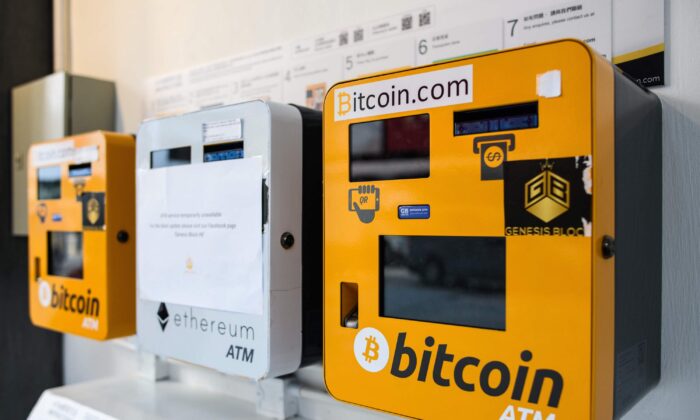Trump to Meet Turkey’s Erdogan at White House Amid Rising Tensions
The Chinese regime reversed a two year ban on cryptocurrencies and now wants to dominate blockchain technology to improve tracking of its own citizens.
Zhejiang University professor Chen Chun successfully explained to Chinese leader Xi Jinping and the Political Bureau of China’s Communist Party on Oct. 24 that “the application of blockchain technology plays an important role in new technological innovation and industrial transformation,” according to Xinhua state media.
Xi told Politburo members the following day that China must “seize the opportunity” for blockchain to play “an important role in the next round of technological transformations in areas such as financing businesses, mass transit and poverty alleviation. Xi directed China to expedite issuing its own digital currency to beat the U.S.-based Facebook’s launch of Libra Coin in order to open up a new competitive front in its growing “Tech War” rivalry with the United States, according to Enodo Economics.
China in 2017 officially ordered the rapidly growing number of local exchanges trading cryptocurrencies to close and banned new initial coin offerings in an effort to prevent risky investment bubbles. But digital banking sources contacted by The Epoch Times for this article stated that the Chinese authorities wanted to prevent Bitcoin and other digital currencies from aiding mainland and Hong Kong capital flight.
The Epoch Times reported that China capital flight did decline from $675 billion in 2016, to $380 billion in 2017, before dropping to $22 billion last year. But capital flight accelerated to $139.2 billion in the first half of 2019.
The 2017 National Development and Reform Commission final order banning crypto trading did not ban the making of new digital currency for existing cryptocurrencies—a practice known as mining. China has continued to host many of the world’s largest cryptocurrency mining farms that remained hyper-competitive due to access to cheap electricity in the country’s coal-rich Xinjiang and Inner Mongolia regions.
The Chinese Communist Party leadership’s reversal on cryptocurrencies is being attributed to a series of briefings by Chen Chun, a professor with Zhejiang University and Chairman of Hangzhou Qulian Technology Co. that holds about half the shares of a blockchain solutions company.
Chun sought to relieve central authorities’ misinformation that Bitcoin and other digital currencies’ biggest attribute is offering privacy and the untraceable qualities similar to that of a “Swiss bank account.” Despite Bitcoin’s popular reputation as anonymous, every single transaction is forever linked to a fixed “wallet” address, providing governments with an almost perfect means of tracking individual and business financial activity.
The policy change kicked off a huge speculative spike up in Chinese blockchain related tech stocks that peaked with a keynote address on Nov. 5 by Galaxy Digital CEO Mike Novogratz at the Reuters Global Investment Outlook 2020 Summit in New York. Novogratz stated that Xi “just credentialized crypto and blockchain.”
The China stock market frenzy cooled on Nov. 6 after the People’s Daily warned about the need to avoid speculative behavior in the blockchain sector. Hangzhou Qulian Technology later that day issued a securities filing that the cryptocurrency investment will not have any effect on “near-term earnings as blockchain is still in its early stages.”
Chriss Street is an expert in macroeconomics, technology, and national security. He has served as CEO of several companies and is an active writer with more than 1,500 publications. He also regularly provides strategy lectures to graduate students at top Southern California universities.
This article is from the Internet:China Reverses Cryptocurrency Ban and Now Wants to Dominate It
President Trump To Make History As First President to Attend NYC Veterans Day Parade
